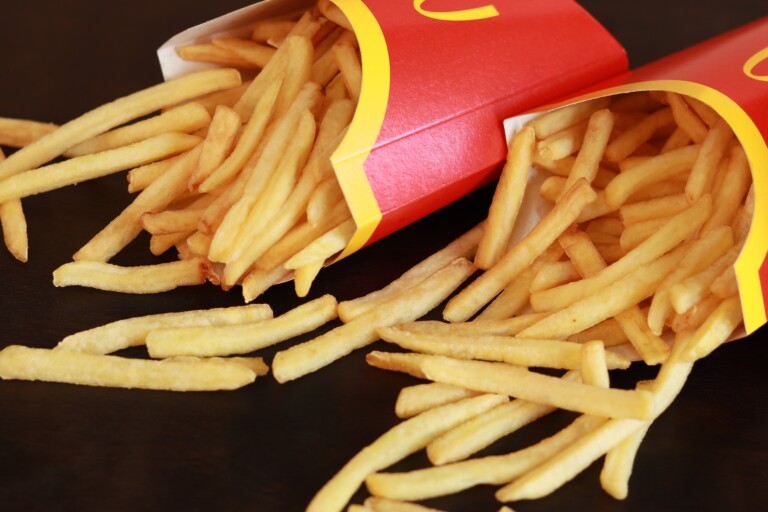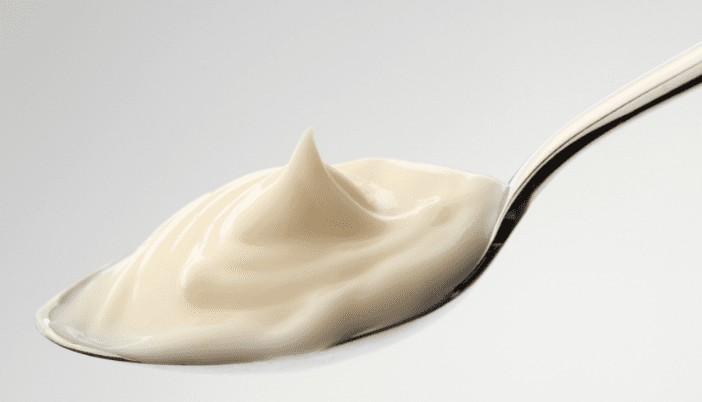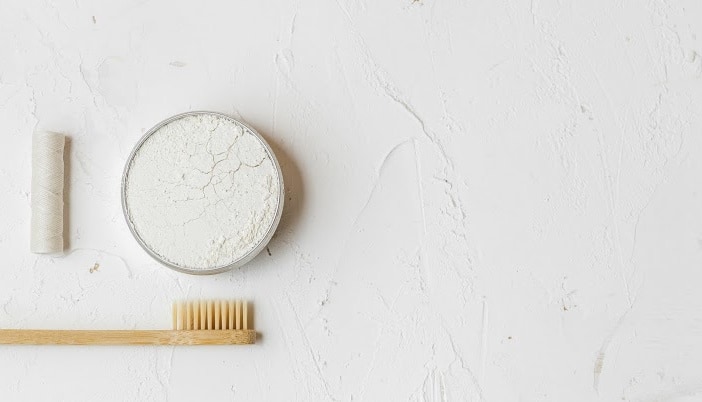Are Skittles Vegan?
The burning question for all plant-based eaters with a sweet tooth: are our favorite colorful childhood sweeties vegan-friendly?
The short answer is yes, they are. Skittles don’t contain any animal-derived products.
The longer answer looks a little something like this:
Skittles are vegan-friendly insofar as they do not contain products/ingredients that stem directly from animals, but they do contain various ingredients that are ‘questionable’ in terms of ethics, and therefore, might not be appealing to those on a strict plant-based, whole-food diet.
But like many of our favourite candy treats, Skittles haven’t always been vegan…
As an Amazon Associate, I earn from qualifying purchases. The links below may be affiliate links. Please read my disclosure policy for more information.
The History of Skittles
Skittles were invented in the United Kingdom in 1974 and were introduced into the United States in 1979, who embraced them as one of their favourite non-chocolate treats.
Naturally, many of our beloved nostalgic treats were not created as suitable for vegans (or even vegetarians.)
Many popular artificial treats have used Gelatin (a water-soluble ‘binding’ protein ingredient that is sourced from the collagen of animal parts), which is far-from vegan-friendly, and the American version was no exception. State-side Skittles contained Gelatin up until 2015, when the product was permanently removed from manufacturing of Skittles.
Because different countries have different ethics and food standard regulations, the same branded product may not be identical on either side of the pond.
While UK skittles have always been Gelatin-free, unfortunately that doesn’t necessarily mean they are vegan-friendly.
Older versions of Skittles have contained a product named E120, which is also known as ‘Carmine’, which is a red ‘dye’ that comes from the female cochineal insect, Dactylopius Coccus, which are crushed for the purpose of the dye. As of 2009, Skittles’ parent company (Wrigley’s) permanently removed this product from the production of Skittles.
As of 2020, Skittles have been classed as ‘vegan’ worldwide.
However, there are still a few ingredients included in our beloved rainbowy treats that are considered controversial and that do not sit well with many vegans.
Controversial Ingredients
Palm Oil
The ugly truth of palm oil production and the damage it does is slowly coming to light across Western culture, but for those unsure of the unpleasant reality behind this popular ingredient, this is what goes on in the palm oil production industry:
Palm oil itself doesn’t actually contain any animal products, however, its production is responsible for mass deforestation every year, which directly destroys and demolishes the habitats and resources of thousands of rainforest creatures. Palm oil is cheap and incredibly unsustainable, which is why mass consumer companies use it in so many of their products.
What is Palm Oil?
Palm oil is a vegetable oil derived from the mesocarp of the fruit of the oil palms. The oil is used in mass production food manufacturing, beauty products, and as a biofuel.
Mass production of palm oil also has an adverse effect on the environment as a collective, such as:
- Air pollution. The typical method of ‘forest clearing’ is burning, which naturally emits smoke and carbon dioxide into the air.
- Soil erosion. Erosion occurs when forests are being cleared to establish the palm oil plantations. The erosion then causes increased flooding and silt deposits in rivers and ports. Eroded areas require more fertiliser, and erosion affects other inputs, including repair of roads and other infrastructure, so it’s another part of the palm oil process that has a negative domino effect on the world we live in.
- Climate change. The process of draining and converting tropical peat forests in palm oil ‘growth’ areas is particularly damaging, as they cause “carbon sinks”, which store more carbon per unit area than any other ecosystem in the world. Also – obviously, forest fires used to clear vegetation are a source of carbon dioxide that contributes to climate change and is damaging to our respiratory health.
Red 20
Since E120/Carmine is no longer used in red Skittles to achieve the vibrant colour, Wrigley’s now use a synthetic colour additive or food dye made from petroleum called Red 20. While studies of this additive are still limited, the substance is considered controversial because:
- The toxins in Red 20, if consumed in either large quantities, or with other synthetic colourants in regular consumption, can contribute to allergies, migraine, and mental disorders in children, particularly ADHD.
- Red 20 isn’t derived from animals, however, it has been used for animal testing to study the safety and effects of it. The study included dogs and rats being given Red 20 and then killed so they could have their intestines examined to see the effects of the dye. Skittles/Wrigley’s is ultimately owned by the Mars corporation, which is still known for their use of animal testing on their products.
How to Tell if Red 20 is in your Products:
Unfortunately, Red 20 isn’t usually listed under that name, so it’s often difficult for us to see if our sweet-craving will be wholly ethical. However, it may be listed under the following:
- Red 40 Lake
- FD&C Red No. 40
- FD&C Red No. 40 Aluminium Lake
- Allura Red AC
- CI Food Red 17
- INS No. 129
- E129
Cane Sugar
Sugar is a plant, so technically it should be completely vegan, right? Well, unfortunately, not quite. Often refined cane sugar actually isn’t vegan. This is because this type of white sugar may be processed with animal bone char to remove impurities and give the sugar its white coloring. And while present-day Skittles contain zero trace of animal product, it is worth taking this information into consideration going forward when stocking up on sugar for your tea or cereals; it’s worth double-checking the packaging to make sure it comes with the certified vegan logo.
What are Skittles’ Other Ingredients?
As of 2020, Skittles’ ingredients feature the following:
Sugar, corn syrup, hydrogenated palm kernel oil; less than 2% of: citric acid, tapioca dextrin, modified corn starch, natural and artificial flavours, colours (Red 40 Lake, titanium dioxide, Red 40, Yellow 5 Lake, Yellow 5, Yellow 6 Lake, Yellow 6, Blue 2 Lake, Blue 1, Blue 1 Lake), sodium citrate, carnauba wax.
Naturally, these ingredients differ with other types of Skittles, such as ‘Sour’, ‘Wild Berry’, ‘Tropical’, ‘Brightside’, ‘Darkside’, ‘Sweets & Sours’, and ‘Sweet Heat’ – all of which hold the ‘Vegan’ certificate on their packaging. The only exception was their limited edition ‘Once in a Blue Moon’ flavour.
A Breakdown of Skittles’ Ingredients:
- SUGAR. Skittles are made using conventional white sugar, which derives from sugar cane stalks and is refined into smaller, whiter granules.
- CORN SYRUP. Also known as glucose syrup, corn syrup is made from corn starch and is used for many things in Skittles (and numerous other foods.) Its purpose is to soften, add volume, improve the ‘sweet’ taste, and prevent the cane sugar from crystallisation.
- HYDROGENATED PALM KERNEL OIL. This plant oil comes from the kernel of the oil palm plant ‘Elaeis guineensis’. In sweets, it’s used to enhance flavour and creates a chewy texture.
- CITRIC ACID. Citric acid is naturally found in citrus fruits, but for sweets like Skittles, a synthetic version is used, which increases acidity, improves flavour, and acts as a preservative.
- TAPIOCA DEXTRIN. Derived from the yucca plant or cassava root, TD is a starch extract, which is used as an adhesive sweet coating, and helps preserve the flavour and colour.
- MODIFIED CORN STARCH. This is an emulsifier and gelling agent made from corn, and aids in creating a ‘gummy’ texture often found in sweets.
- NATURAL AND ARTIFICIAL FLAVOURS. Companies usually don’t disclose the details of these “flavours”, unfortunately.
- COLOURS. As previously mentioned, Skittles use synthetic ‘dyes’, such as Red 40 Lake, Red 40, Yellow 5 Lake, Yellow 5, Yellow 6 Lake, Yellow 6, Blue 2 Lake, Blue 1, Blue 1 Lake, and titanium dioxide. These colours are mostly derived from raw materials obtained by petroleum.
- SODIUM CITRATE. This is the ‘sodium salt’ part of citric acid. It’s used as a preservative and provides a Skittles’ sharp, acidic flavour.
- CARNAUBA WAX. This is wax from the leaves of the palm plant Copernicia prunifera. Its purpose is to keep the outer coating shiny and prevent the candies from melting, or the colours from weeping.
*Please note: these ingredients are from the original Skittles. The other Skittles editions may have varying/other ingredients.
Controversies Surrounding the Mars™ Company
Mars is not known for its wholehearted support of animal rights. This is their official statement on the subject:
“In the day-to-day development of our chocolate, gum and confection, food, drinks, and pet care products, we do not undertake, support or sponsor studies that harm animals. This represents the vast majority of our activities and products.
We may sponsor a limited number of studies involving rats, mice, fish and other aquatic species.” – Mars Animal Welfare Policy
So, those with a plant-based diet who do not wish to consume so-called ‘vegan’ products from a company that is pro-animal testing may wish to avoid all products that come under the Mars umbrella.
Conclusion
As of 2020, you can chomp back a bag of Skittles safe in the knowledge that you’re not consuming any animal products, however, the production and manufacturing behind the sweets may not be 100% in alignment with the morals and ethical reasons behind going vegan.
All company’s packaging now, by law, must be transparent about their ingredients and whether or not they’re vegetarian- or vegan-friendly, therefore it is wise to always check the labels of the food you purchase, and/or do a little research behind your beloved brands to make sure they’re producing our treats as ethically as possible.
Please note, as discussed in our ‘Is Sugar Vegan?’ article, not all types of sugar can be considered vegan. It is therefore the responsibility of the reader to make their own inquiries with the manufacturers of these suggested vegan friendly products to determine whether the sugar used in these products are suitable for vegan consumption.






